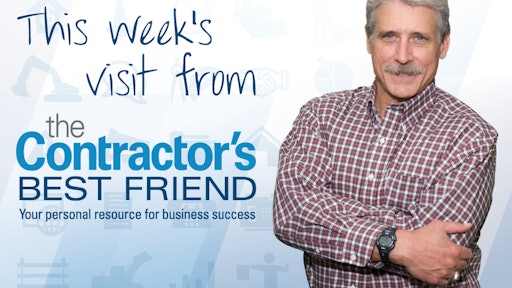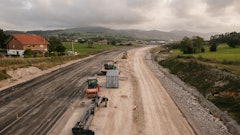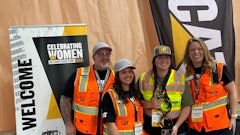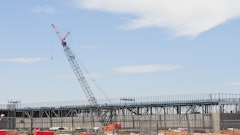
Last week we examined the screening and hiring process with an eye toward creating a hiring approach that can lead you to the best candidates. This week let’s now look at some actual questions to use when interviewing candidates.
As we shared last week the first interview can be conducted over the telephone. Consider the following questions and proof statements for the first interview.
Step 1: Questions & Proof Statements
- I notice that you have had several jobs in the past 3-5 years. Can you explain why you have changed jobs so often?
- This job requires a commercial license. Do you have yours? Is there anything that would prevent you from securing your commercial license?
- Do you have any problems being at work, if you are hired, on-time and to work the hours this job will require?
- I will need at least two work references. Do you have two individuals that I can call to discuss what type of worker you are?
- Briefly explain to me why you want this job and what I should expect from your work performance.
- Part of this job will require you to make cost decisions. Tell me of your experience in making such decisions.
The second interview should be conducted at your place of work or a location that is free from distractions. The purpose of the second interview is to dig a little deeper at the skills and experience of the candidate. Use the following items on the second interview.
Step 2: Questions & Proof Statements
- List for me the skills you possess and that I would observe when you are at work. Now, for each skill you listed, tell me how often you used each skill.
- What are your top three to four developed skills? How did you acquire the skills and how effective are you at the skill?
- Teamwork is very important at our organization. Tell me how you fit in as a team player at your last job.
- It can get pretty heated during the day with guys getting mad at each other. Tell me about the time you got the most upset with other workers and how you handled your anger.
The final interview should be to take any loose ends in the previous two interviews and bring greater clarity or closure. It is a good time to call any job references that they have given you prior to this third interview. The feedback received may invite you to follow-up with the candidate about an area that has not been discussed. Your job is to determine whether they are the best matched for the job.
Step 3: Questions & Proof Statements
- Lay out for me how you performed your last job. Take me through how you organized your workday.
- One of your references shared with me that you did a good job of thinking ahead before completing a difficult or complex job. Tell me about the toughest job you had to complete and how you figured it out.
- Why should I hire you? Tell me what I will get in you. Give me both the good and the bad.
- What improvements did you make in your last job? Did any of the improvements save your last boss money or wasted time? Explain to me what you did and how it saves money or time.
The advantage of three interviews is that you have time to detect if anything changes in the candidate’s attitude and responses. A multiple interview process sends the signal that you are very careful about whom you hire.
Also, as a side note, it’s very difficult for any candidate who is stretching their past accomplishments over two to three different interviewing sessions. Often, the candidate who may be lying will often say something that conflicts with what he or she may have provided on a previous interview.
The Final Hiring Decision
After all of your interviewing efforts, it still comes down to making THE decision. For some contractors fortunate enough to have more than one solid candidate, the dilemma of choosing the right candidate can be nerve racking.
Before making the final hiring decision, consider the following items.
- The candidate selected should possess the minimum skill requirements for the job.
- The candidate should reflect the type of attitude you want and will accept in the job.
- The candidate’s personality should match the needs of the job.
- The candidate should have a proven track record for learning and improving.
The first consideration listed above should be no problem. Of course you want a minimum level of skills to already be possessed by the candidate, even for beginning level general laborers.
Can you make a hiring decision based on the attitude that a candidate displays or lacks? Yes! If the candidate comes across to you as obnoxious, a “know it all,” or apathetic, these are all reasons that may prevent you from hiring the candidate. Work to find out what kind of attitude the candidate has displayed at other jobs.
The third consideration listed earlier addresses the personality of the candidate. While you will never find the perfect personality match, it is possible to align candidates with the personality considerations in a job. Understanding what personality traits would be best in a job can enable you to better match the right candidate with the right job.
Assuming that your company and industry are constantly changing it is important to hire people who have some desire to learn new skills and acquire greater knowledge. Ask the candidate what they have learned to date and what more they need to learn if they are going to stay in the industry.
Do not allow the lack of available good candidates tempt you to lower your expectations and standards. There is nothing worse than hiring the wrong candidate too early rather than patiently seeking the better candidate.
Hiring would be a lot easier and a lot less costly if we could read the minds of candidates or look into the future to determine if a candidate was going to work out. Unfortunately most of us do not possess such skills or talents. Yet utilizing some of the considerations addressed in this article can help you to make better hiring decisions.
Win the hiring war by preparing your strategy with a pre-planned effort that provides a process to follow and selects the best questions to raise. You'll then be confident and won't allow workers to tempt you to lower your bar of what you need.
Good Hiring!
Brad Humphrey
© 2013 Brad Humphrey, Pinnacle Development Group/The Contractor’s Best Friend™




























